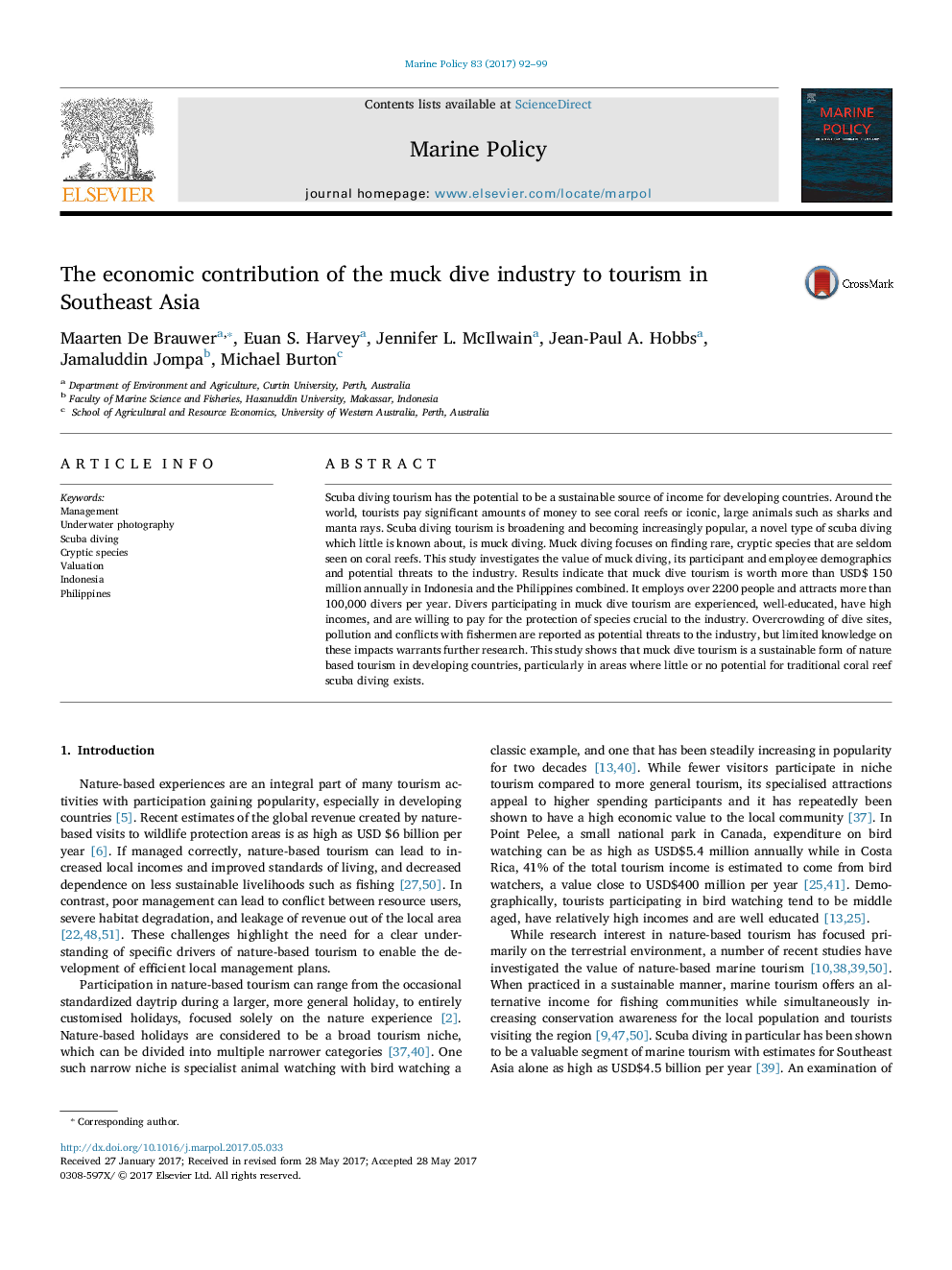ترجمه فارسی عنوان مقاله
سهم اقتصادی از صنعت غواصی مچ به گردشگری در آسیای جنوب شرقی
عنوان انگلیسی
The economic contribution of the muck dive industry to tourism in Southeast Asia
| کد مقاله | سال انتشار | تعداد صفحات مقاله انگلیسی |
|---|---|---|
| 149599 | 2017 | 8 صفحه PDF |
منبع

Publisher : Elsevier - Science Direct (الزویر - ساینس دایرکت)
Journal : Marine Policy, Volume 83, September 2017, Pages 92-99
ترجمه کلمات کلیدی
مدیریت، عکاسی زیر آب، غواصی، گونه های عجیب و غریب، ارزیابی، اندونزی، فیلیپین،
کلمات کلیدی انگلیسی
Management; Underwater photography; Scuba diving; Cryptic species; Valuation; Indonesia; Philippines;

